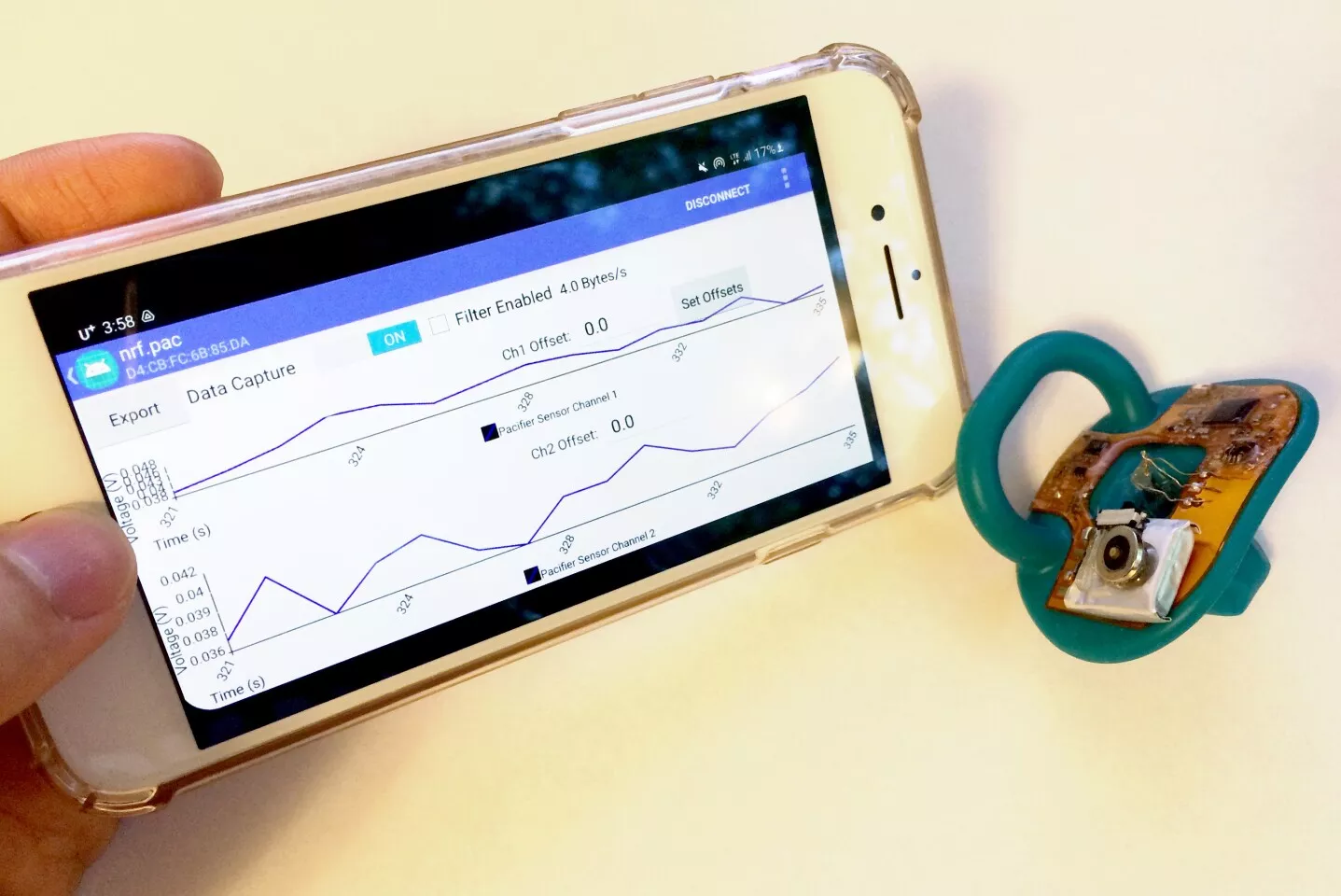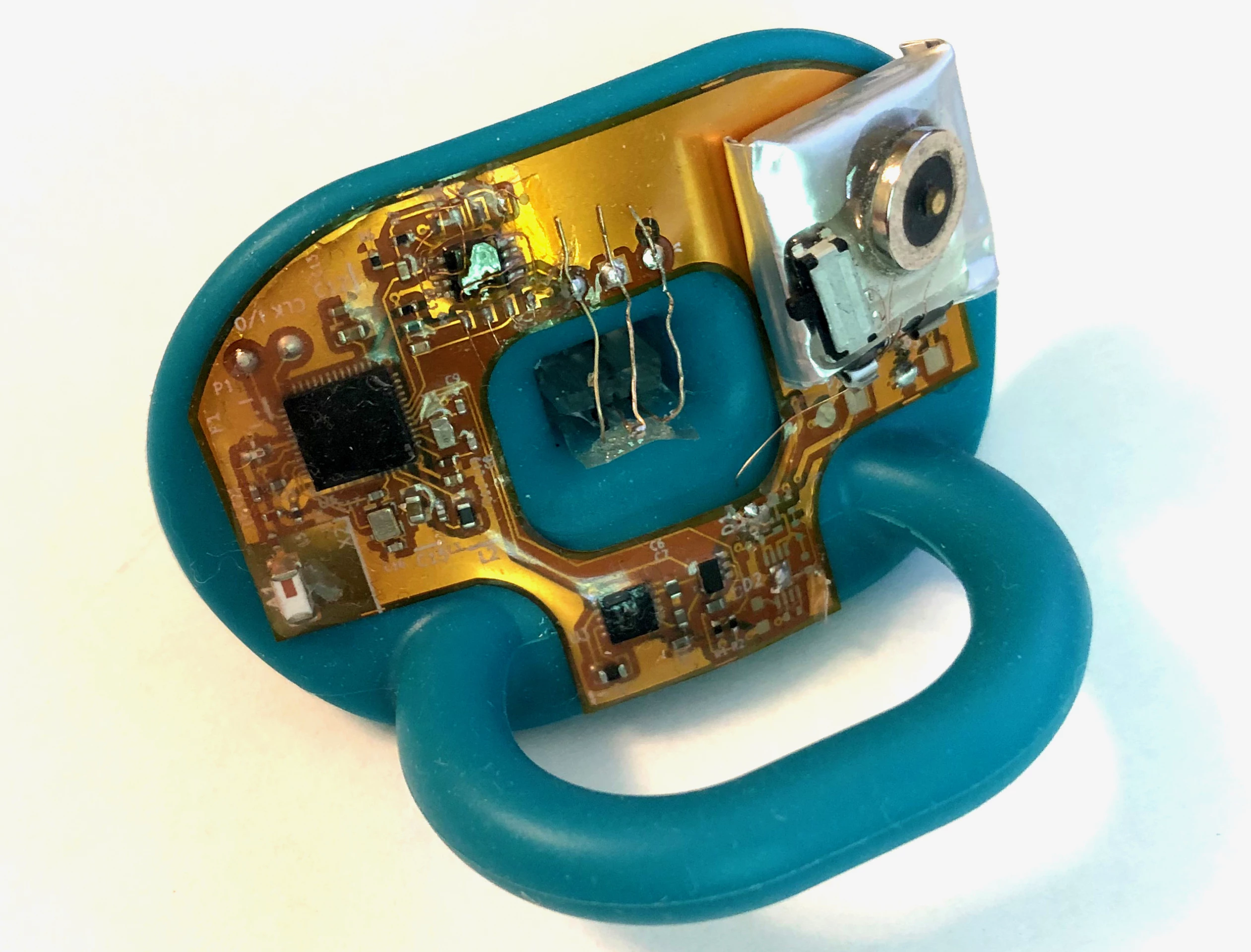At present, in order to check the electrolyte level of newborns, blood samples are taken from infants twice a day Soon, however, a "smart" pacifier could be used to collect the same data noninvasively Monitoring the electrolyte of newborns is very important because low levels represent that the baby is dehydrating - a particularly common problem in preterm infants. Although these electrolytes are present in the blood, they are also found in corresponding amounts in saliva.

Considering this fact, a team from Washington State University led by associate professor Jong Hoon Kim developed an experimental new pacifier. It combines a commercially available pacifier with electronic components.

When babies suck the device, saliva is naturally drawn from their mouths into a series of integrated microfluidic channels - without a pumping mechanism. Sensors in these channels detect and measure the concentration of sodium and potassium ions in saliva. These data can be transmitted to the nursing staff's mobile device through Bluetooth and displayed on an application screen.
When the pacifier tested the baby in the neonatal intensive care unit of a hospital, it found that the electrolyte reading reported by the device was consistent with that obtained by traditional blood sampling. More importantly, these data can be provided continuously as long as it is held in the baby's mouth.
"Usually, in a hospital setting, they take blood from the baby twice a day, so they only get two data points. This device is a non-invasive way to monitor the baby's electrolyte concentration in real time," Kim said
Now, scientists are trying to make the device cheaper and more recyclable. In addition, they also plan to carry out larger scale experiments. A paper on their research was recently published in biosensors and bioelectronics.